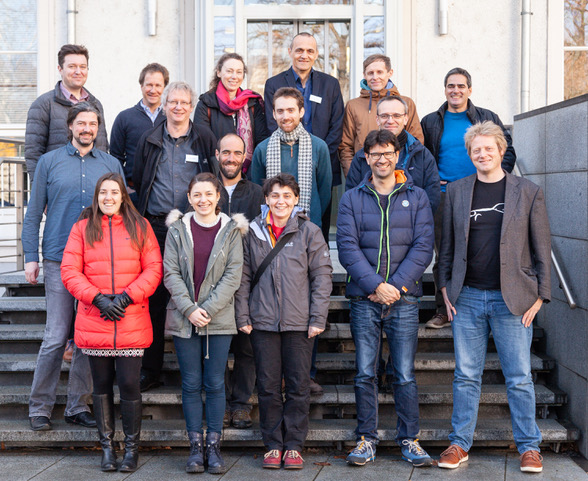
 bafg.de
bafg.de
The first full workshop of PAGES' Extreme Events and Risk Assessment Integrative Activity, titled "Climatic and hydrological extremes: linking the instrumental period of the last decades with the more distant past" will be held from 18-20 February 2019 in Koblenz, Germany.
Access the 2nd circular here.
Logistics
This is a semi-open workshop for a total of 20-25 people. A first group of attendants will be scientists who already have expressed interest in the goal of the workshop. The second group includes scientists who would be able to fill in gaps in the expertise. Finally, a call will be launched for about 5-10 participants based on relevant expertise or interest in the subject.
Overview
The goal of the workshop is to reinforce the coordination between existing research lines on climatological and hydrological extreme events of the past including the instrumental era. The workshop thus contributes to the IA on Extreme events and risk assessment, to stimulate new analysis and to facilitate the transfer of relevant information to potential users. The community is very diverse in focus, timescales and methodology.
The forthcoming IPCC Assessment Report offers a clear target. In this framework, a synthesis that would present in a way adapted to non-specialists the contributions from analyses on long time scales would an extremely valuable resource. In particular, it is important for scientists outside the domain to know the accuracy of the available data and the robustness of the interpretation. Besides, scientists working on the more recent period could explain their need and how the techniques they are applying could be used on longer term changes. We do not expect that this synthesis could cover all aspects but, at least for hydrological extremes, a strong interest has been shown at a recent splinter meeting at the EGU 2018 general assembly and there is a critical mass of potential participants.
In addition, the Global Climate Observing System (GCOS) is developing requirements for Essential Climate Variables (ECV). An ECV is a physical, chemical or biological variable or a group of linked variables that makes a decisive contribution to characterizing the Earth's climate and its extremes. The synthesis could provide a similar characterization of the measurement requirements from a palaeo point of view.
Goals
A main goal of the IA is to facilitate the transfer of relevant information about past extremes to potential users. A synthesis paper will offer the opportunity to inform a wide range of users that are not aware of the relevant information provided by paleoscientists and who do not read the specialized literature on this subject. Vice versa, new findings from the modern community should also stimulate the discussion within the paleo-community.
Preliminary program
18 February: Lunch buffet, introduction, keynote presentations (plenary session)
19 February: Discussion divided by working groups
20 February: Synthesis of working group discussion, final discussion and conclusions (plenary session)
The first day will be devoted to review presentations by groups of participants. Those reviews will be prepared well in advance of the meeting and will cover a wide topic, not only the specialty of the participants. A forum will also be launched to stimulate the inputs from the community and to discuss the most relevant subjects.
The working groups will focus on floods, droughts, extreme precipitation, storms, and attribution analysis.
During day two and three, the main themes will be selected, the structure of a synthesis paper will be prepared and the tasks will be distributed among participants. If time allows, some parts of the text will be written in subgroups.
Financial support
PAGES has provided funding for several early-career scientists who could not join the meeting otherwise. Experts of developing countries can apply for funding sponsored by the ICWRGC.
Registration and Dates
Pre-registration can be done by contacting the organizsers via email at icwrgc@bafg.de until 2 December 2018.
In order to apply for participation, please send an email explaining in a few words your expertise, workshop expectations and the potential contribution to the workshop. Indicate also whether you need financial support.
Decisions about applications and support will be communicated to participants by 14 December 2018. Selected participants will then be invited to finalize their registration for the workshop.
The organizers will take care of the hotel booking for funded participants for the duration of the workshop.
Sponsors
- International Center for Water Resources and Global Change (ICWRGC)
- Federal Institute of Hydrology (BfG)
- PAGES (Past Global Changes)
Workshop planning committee
- Stephan Dietrich – Resources and Global Change (ICWRGC)
- Bruno Wilhelm – Université Grenoble Alpes
- Hugues Goosse – Université catholique de Louvain
- Blas Lorenzo Valero-Garcés – Spanish National Research Council
Further information
Contact meeting organizer Stephan Dietrich: dietrich@bafg.de
Post-meeting material
|
|
|
Workshop participants in Koblenz. |
